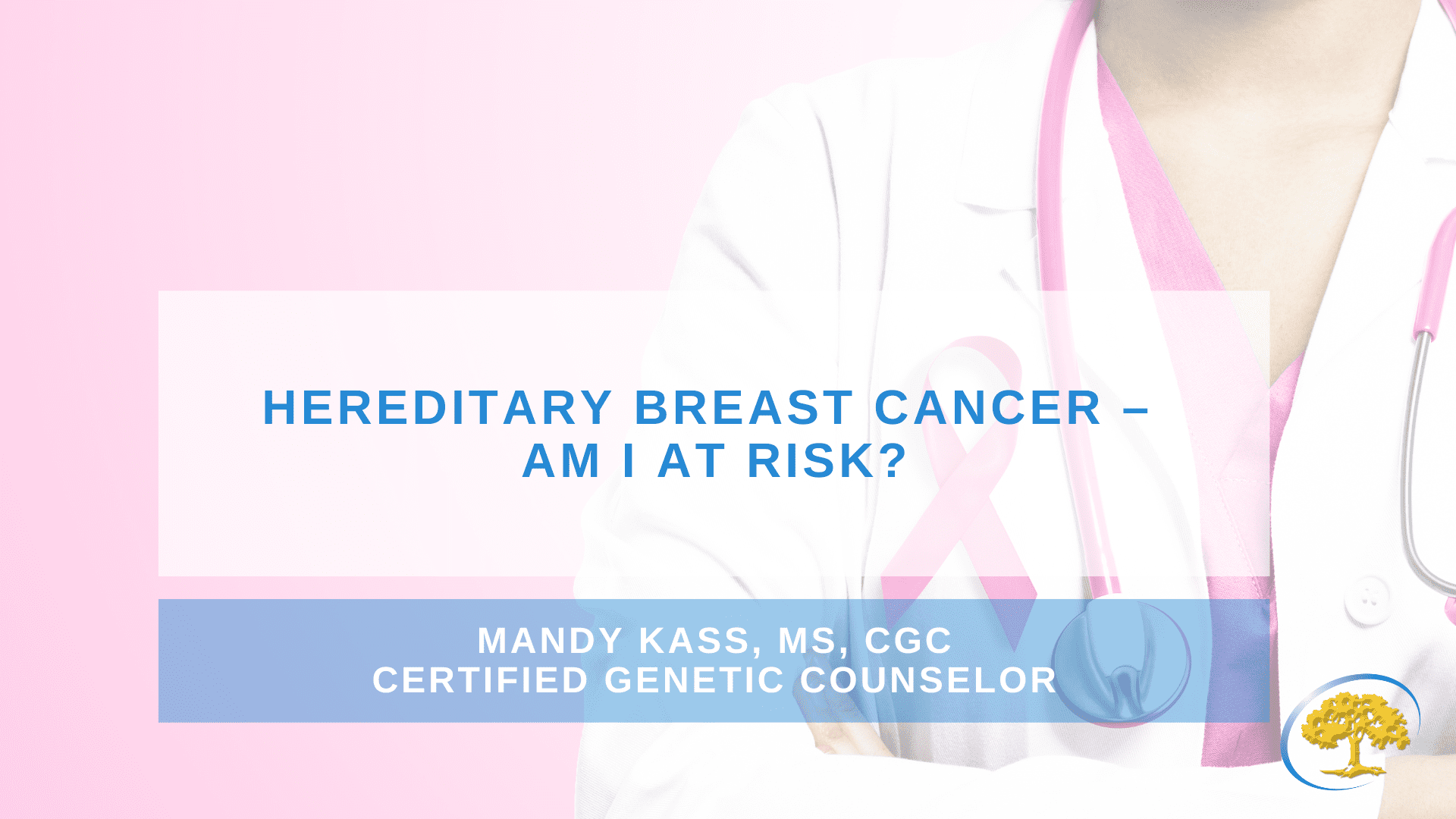
Posted 2 years ago
Hereditary Breast Cancer – Am I At Risk?
On average, a woman has a 1 in 8 chance to develop breast cancer in her lifetime and approximately 10% of these breast cancer cases are thought to be hereditary. An individual’s family history, genetic factors, and ancestry are all important risk factors that can influence someone’s breast cancer risk. That’s why October, which is breast cancer awareness month, is a good time to raise awareness for the hereditary side of breast cancer.
The two most well-known genes associated with hereditary breast cancer are BRCA1 and BRCA2. Men and women all carry two copies of both BRCA1 and BRCA2; one copy comes from their mother and the other copy comes from their father. These genes help protect us from breast and other cancers by repairing damage in our DNA. If either of these genes is not working properly (mutated), then that individual will have a higher risk to develop breast, ovarian, and other cancer types. Certain populations have a higher risk of inheriting a BRCA mutation. For example, approximately 1 in 40 individuals with Ashkenazi Jewish ancestry will have a BRCA gene mutation (as compared to 1 in 500 individuals with a BRCA mutation in the general population).
Although the BRCA1 and BRCA2 genes account for 5-10% of hereditary breast cancers, other genes have been identified over the years that are associated with an increased risk for breast and other cancer types. These genes include PALB2, ATM, and CHEK2 amongst others. Some of the more common characteristics of a family with an inherited risk for breast cancer may include breast cancer occurring under the age of 50, triple negative breast cancer, multiple cases of breast cancer on the same side of the family, or ovarian cancer. As the field of genetics continues to evolve, it is possible that other genes with an association to breast cancer risk may be identified.
Knowing if you have an inherited risk for breast or other cancers can allow for the pursuit of increased screening or preventative procedures, as well as aide in identifying other family members that may carry the same hereditary cancer risk. If you are concerned about your possible inherited risk of breast cancer, or if your previous genetic testing only included BRCA1 and BRCA2, we encourage you to talk with your providers about genetic testing or updated testing.
Mandy Kass, MS, CGC
Genetic Services Department
As a certified oncology genetic counselor, Mandy works with patients who have a personal and/or family history of cancer to assess their risk of having an inherited cancer predisposition. This information allows for the pursuit of early detection or possibly prevention of certain cancer types.
The ultimate goal of cancer genetic counseling is to empower patients to use their personal risk information to better inform treatment and management decisions and to educate family members on their possible cancer risks.

